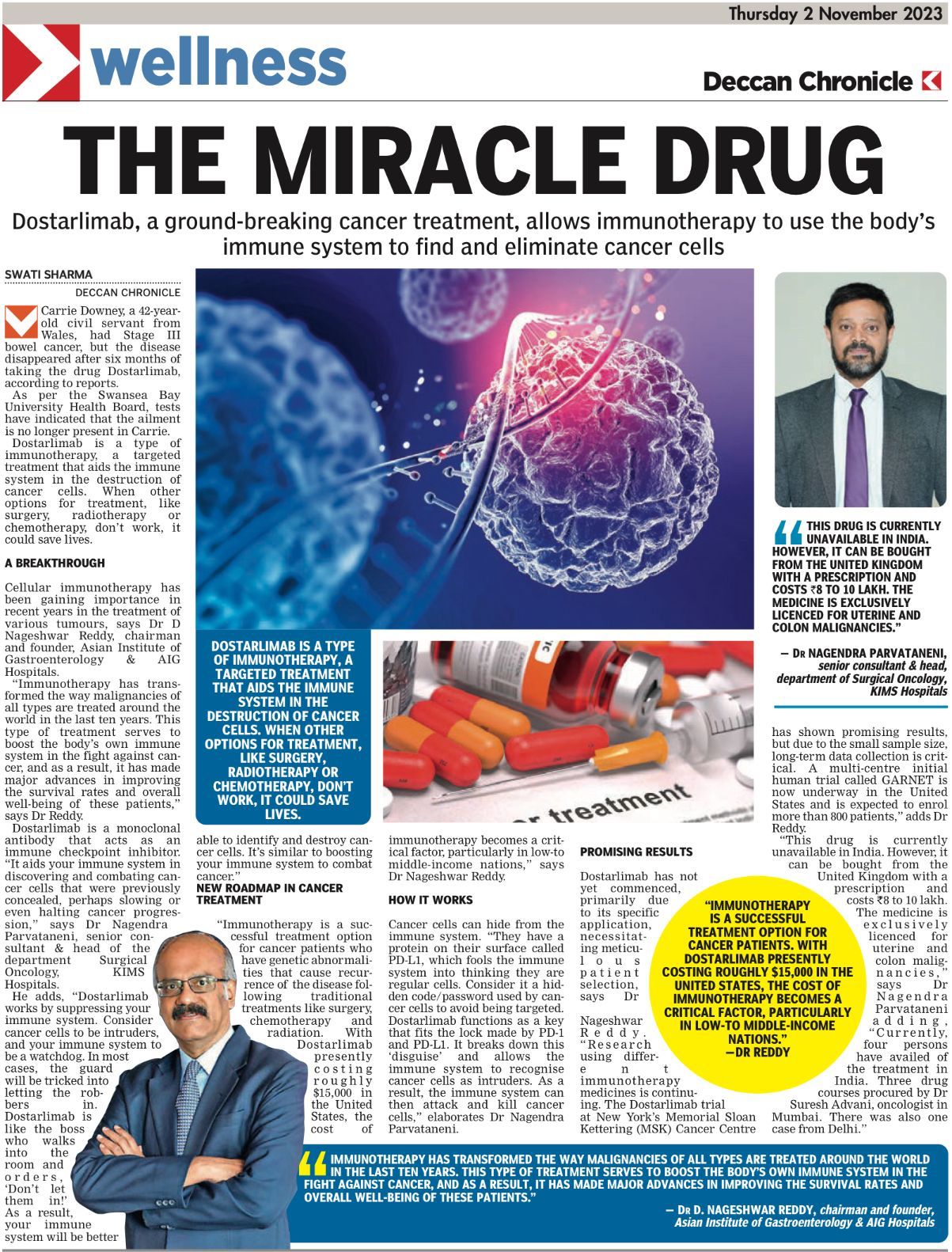The Remarkable Story of Dostarlimab: A Revolutionary Breakthrough in Cancer Treatment
In recent medical news, we’ve come across a truly extraordinary and inspiring story of hope and transformation. It revolves around Carrie Downey, a 42-year-old civil servant from Wales, who was diagnosed with Stage III bowel cancer. Her journey took an unexpected turn, and the unimaginable happened—her cancer disappeared after six months of taking the drug Dostarlimab.
The Astonishing Transformation
According to the Swansea Bay University Health Board, tests have indicated that the ailment is no longer present in Carrie. Dostarlimab, the remarkable drug that played a pivotal role in her recovery, is a form of immunotherapy—a targeted treatment that assists the immune system in the battle against cancer cells. When conventional treatments like surgery, radiotherapy, or chemotherapy fail to deliver results, Dostarlimab emerges as a beacon of hope that could potentially save lives.
A Paradigm Shift in Cancer Treatment
The field of cellular immunotherapy has witnessed a significant surge in recent years, and experts like Dr. D Nageshwar Reddy, chairman, and founder of the Asian Institute of Gastroenterology & AIG Hospitals, have been at the forefront of these transformative developments.
“Immunotherapy has completely revolutionized the way various types of malignancies are treated globally over the past decade. This groundbreaking treatment method focuses on enhancing the body’s own immune system, enabling it to combat cancer effectively. As a result, it has brought about remarkable advancements in improving survival rates and the overall well-being of cancer patients,” states Dr. Reddy.
Unveiling Dostarlimab’s Mechanism
Dostarlimab, a monoclonal antibody acting as an immune checkpoint inhibitor, is at the heart of this revolutionary treatment. Dr. Nagendra Parvataneni, senior consultant, and head of the department of Surgical Oncology at KIMS Hospitals, provides valuable insights into how Dostarlimab works.
“Dostarlimab plays a crucial role in unmasking cancer cells that have been cleverly concealing themselves from the immune system. These cells possess a protein on their surface known as PD-L1, which tricks the immune system into perceiving them as normal cells. In essence, it’s like a secret code or password that cancer cells use to evade detection. Dostarlimab acts as the key that fits this lock made by PD-1 and PD-L1, effectively dismantling their disguise. This allows the immune system to recognize these cancer cells as intruders and subsequently mount an attack to eliminate them,” explains Dr. Parvataneni.
The Promise of Dostarlimab
Dostarlimab has not yet reached widespread use, primarily due to its specific application, which necessitates careful patient selection. Dr. Nageshwar Reddy emphasizes the ongoing research involving different immunotherapy drugs. Notably, the Dostarlimab trial at New York’s (
KIMS
) Cancer Centre has shown promising results. However, due to the relatively small sample size, long-term data collection is imperative. A multi-center initial human trial named GARNET is currently underway in the United States and is expected to enroll more than 800 patients, providing further insights into the drug’s efficacy.
Accessibility and Cost Considerations
As revolutionary as Dostarlimab is, its accessibility and cost remain significant considerations. In the United States, this groundbreaking treatment is priced at approximately $15,000, making it a crucial factor, especially for patients in low-to-middle-income nations. Dr. Nageshwar Reddy points out that Dostarlimab becomes a lifeline for cancer patients with genetic abnormalities that result in recurrent disease following traditional treatments like surgery, chemotherapy, and radiation.
Global Availability and Hope on the Horizon
While Dostarlimab is currently unavailable in India, there is a glimmer of hope. It can be obtained with a prescription from the United Kingdom, albeit at a cost of ₹8 to 10 lakh. The drug is exclusively licensed for the treatment of uterine and colon malignancies. Dr. Nagendra Parvataneni shares that a handful of individuals in India have already undergone this treatment, with some of them procuring the drug courses from Dr. Suresh Advani, an oncologist in Mumbai, and one case from Delhi.
A New Dawn in Cancer Treatment
In conclusion, Dostarlimab stands as a symbol of hope and a beacon of transformation in the realm of cancer treatment. Its remarkable ability to empower the immune system and unveil the hidden threats of cancer cells holds immense promise for patients around the world. As we eagerly await further research and widespread availability, Dostarlimab’s potential to save lives and redefine the landscape of cancer treatment remains an inspiring story worth sharing.





